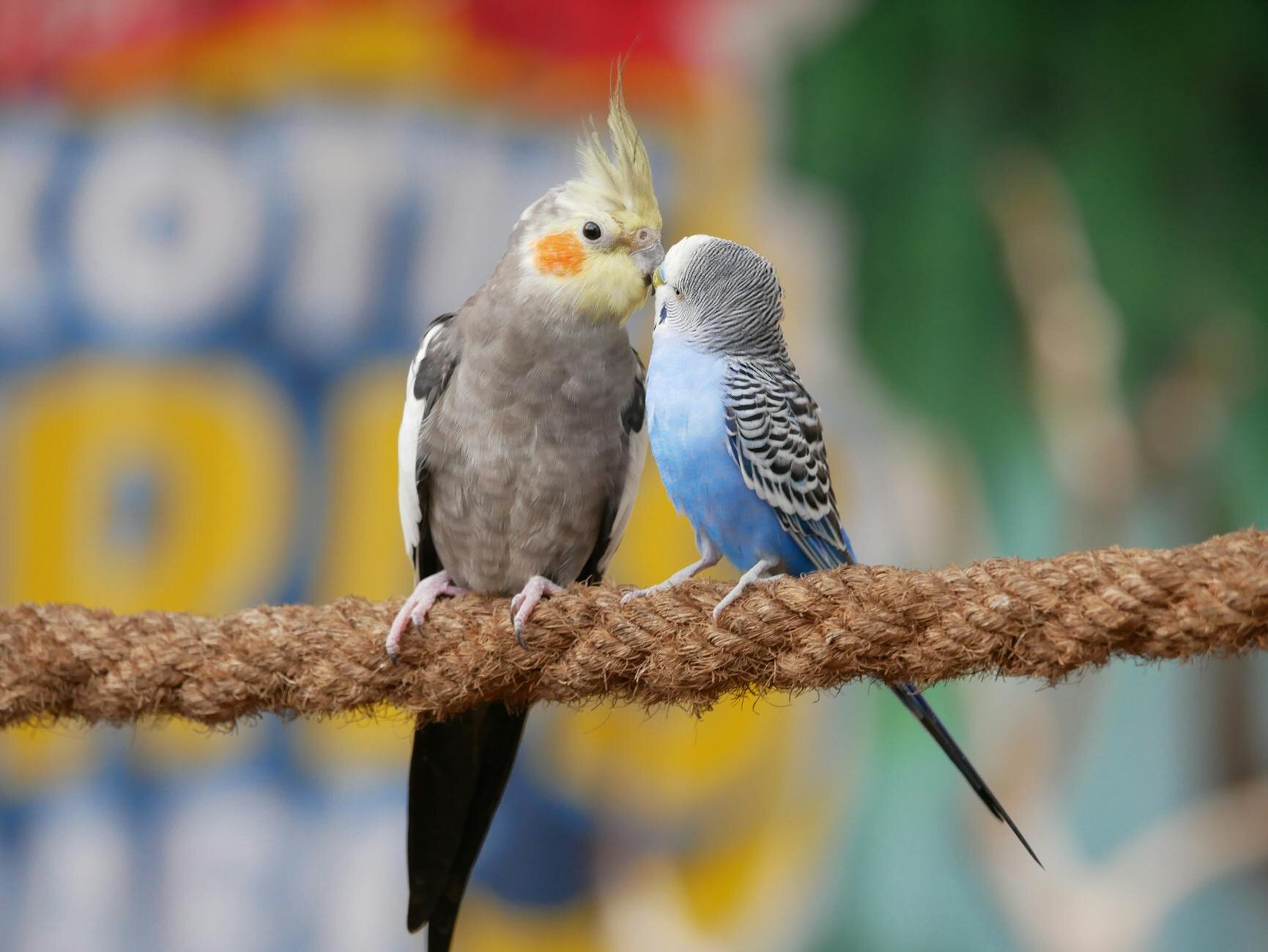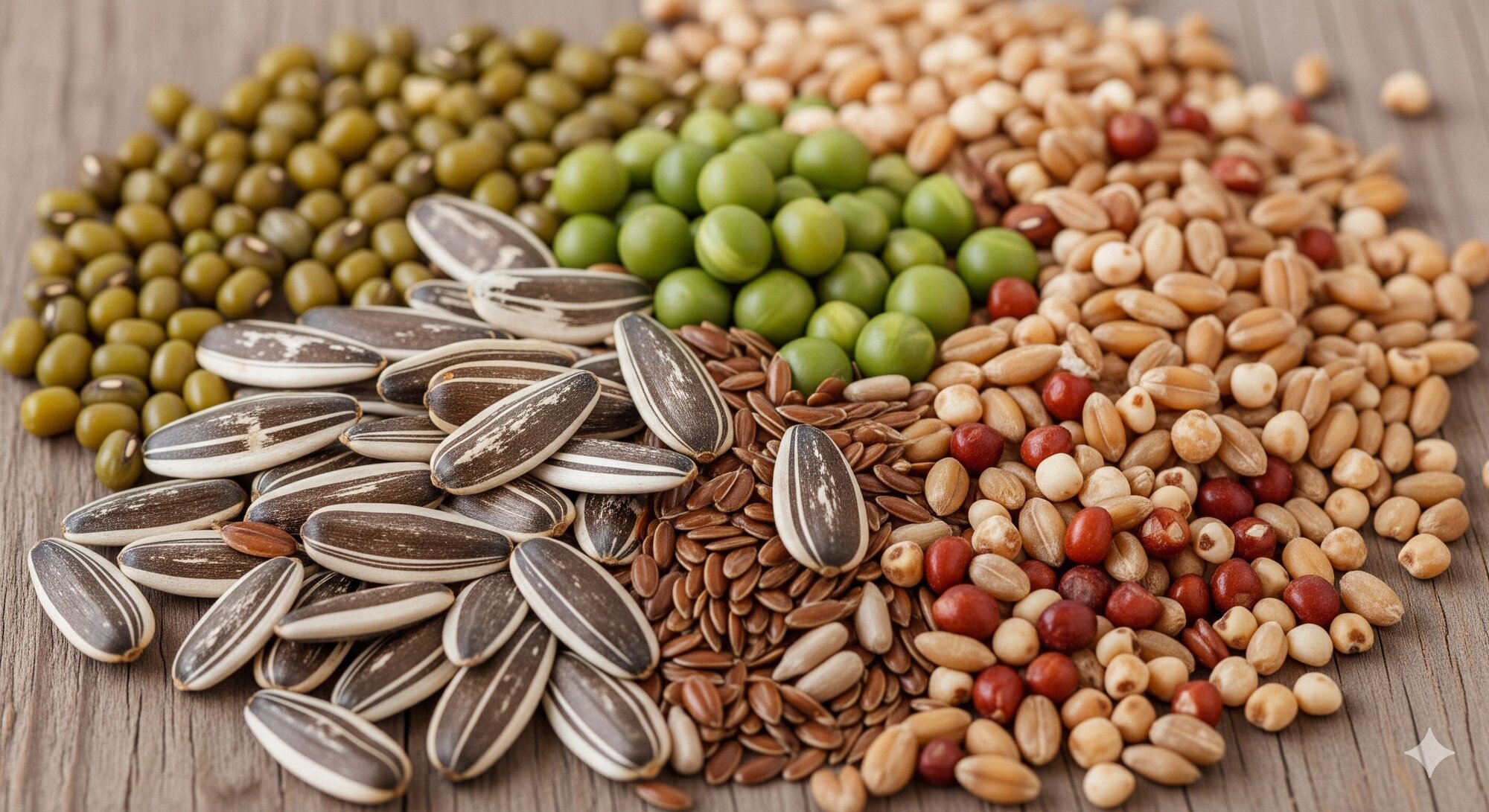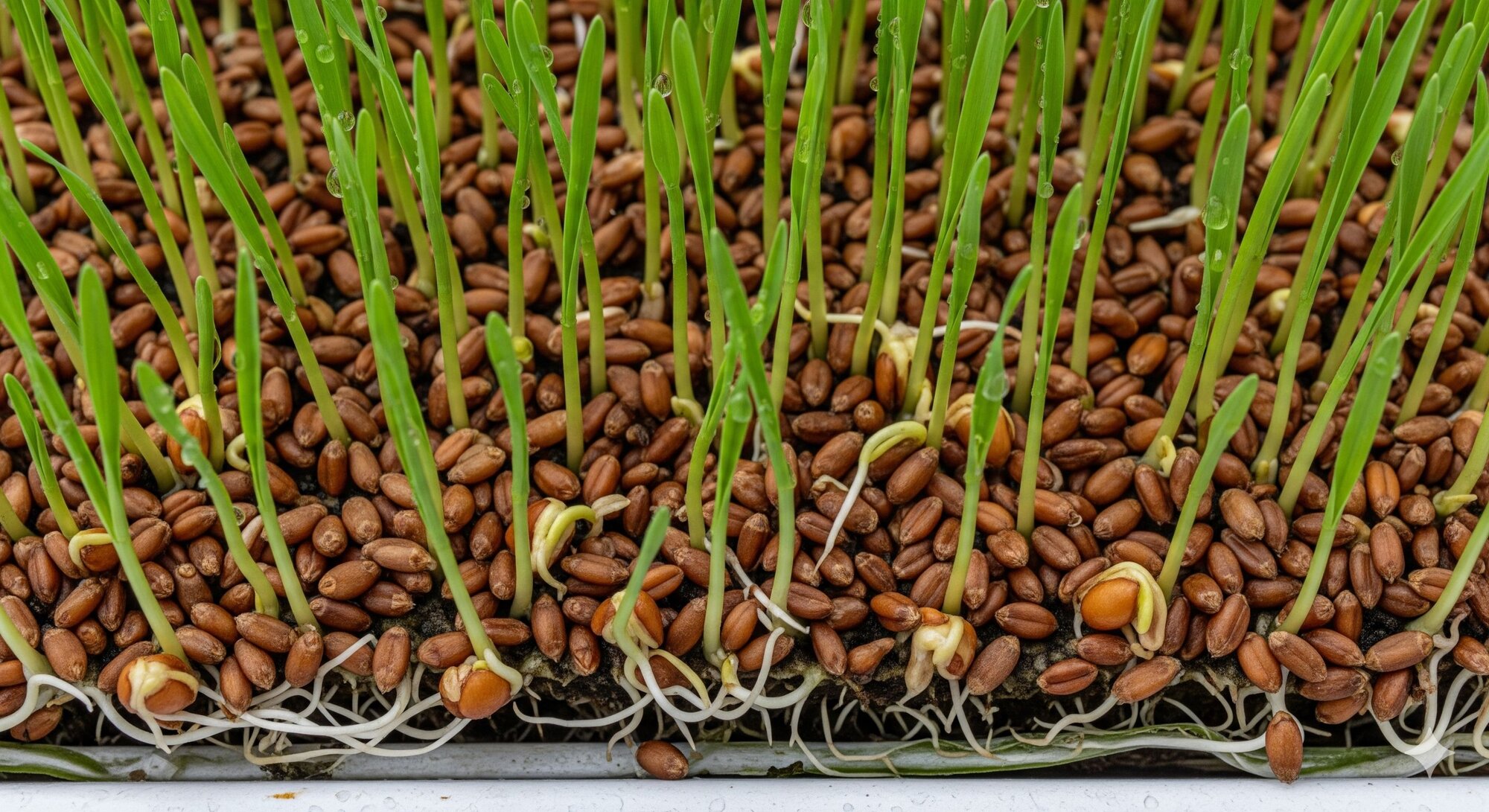Last Updated: 08/09/2025
How to Sprout Seed for Your Bird
Sprouting seeds is a great way to add variety to your bird's diet and encourage foraging. This vet-written guide explains the benefits, like unlocking digestible proteins, vitamins, and minerals. Learn the easy steps to sprout seeds at home using simple containers and a sieve.
Author: Dr Emilee Lay BVSc BSc (Vet) Hons
Reading Time: 3 minutes - short read
Sprouting seed is a great way of providing variety to your bird diet, and can be a helpful tool for birds transitioning away from high seed diets. Sprouted seed can be provided to a range of passerines and parrots, and is another way to encourage foraging behaviour at home. For more detailed information on what you should be feeding your bird see our extensive list of bird articles!
Check out our guide to converting birds onto pellets for more information.
Benefits of sprouting seed

Birds kept as pets rely on us to make healthy choices for them, including feeding a proper diet and providing avenues for normal behaviours like foraging and chewing. A lack of foraging and high seed diets can lead to unwanted behavioural problems, alongside nutritional imbalances that can result in life threatening diseases.
In the wild, parrots spend a majority of their time foraging for food, finding seeds naturally is like hitting the jackpot! Hence why birds absolutely gorge themselves on seeds in captivity and become addicted to their high fat content. Transitioning birds over to a more balanced diet can be quite the chore, and sprouted seeds are often more readily accepted by birds who are in the middle of that process.
Sprouting or germinating seeds unlocks their hidden potential by utilising the fat to create more readily digestible and available proteins, vitamins, minerals, and enzymes. It is best to feed freshly sprouted seeds to get the best bang for your buck, so to speak, as this is the time where their nutritional value is the greatest. Sprouted seed is also great for breeding parrots who are weaning their chicks, as the softened seed is often more easily consumed.
What seeds can be used?

Any seed can technically be sprouted, what's important is making sure you are aware that different seeds require slightly different germination processes in regards to temperature and length of time needed to germinate.
Mung beans, sunflower seeds, rapeseed, linseed, and peas are all high protein seeds which are beneficial for growing or breeding birds. Sprouted seed suitable to provide all year round include canary seed, wheat, oats and sorghum. However, just about any seed can be sprouted to feed your birds.
How to Sprout Seed

Seed sprouting is very easy and can be done at home with very little additional tools. If you like, seed sprouting kits or jars can be purchased online to make the process smoother and easier
What you will need: A container or jar for sprouting and a sieve.
Optional: bird-safe water disinfectant or supplements to be added to the sprouts for an extra kick.
- First acquire good quality seeds (ideally a bird specific sprouting mix OR purchase individual seeds from a human health foods section). Place these seeds in a container and rinse well - consider using a bird safe water disinfectant at this stage to remove any mould and bacteria.
- Fully immerse the seeds in water, once the seed has been thoroughly rinsed and any contaminants removed, leaving a couple cm of water above the seeds to account for them expanding. Depending on the climate and seed you will need to leave it submerged for 5-24 hours. Smaller seeds and warmer climates need less time, and larger seeds and colder climates more time
- Allow it to air dry. Using a sieve, remove the seed from the container and rinse thoroughly. Place the rinsed seed in a sieve or leave it on a mesh tray, with adequate space between the seeds. Generally speaking, the optimum temperature for germination is between 24-26oC
- Rinse the seed once every 24 hours (for hotter climates this should be done more regularly to prevent the seed from completely drying out) until they begin to sprout (this can take up to 2-3 days). Signs of sprouting include: cracked seeds and/or small, white roots between 1-3mm emerging from the cracks.
- Place the sprouted seed in the refrigerator for up to three days or feed it fresh! If you wish to keep them in the freezer, do not allow the seeds to fully sprout.
- Monitor for signs of contamination including - strong odours, mould, abnormal looking seeds, or pasty, slimy, films on the seed. Common causes for this include humid environments, poor air flow, or contaminated seed and water.
Sprouting seeds for your bird is a wonderful way to boost the nutritional value of their diet and provide excellent enrichment. By following these simple steps, you can offer your feathered friend a fresh, tasty, and wholesome treat that mimics the foods they would forage for in the wild. Always remember to prioritise hygiene to ensure the sprouts are safe for your bird to enjoy.
Articles recommended for you
Our vet authored guide to the benefits of feeding your dog fresh food plus tips and advice for introducing it into their regular menu.
See our guide to protecting your pet from parasites from our vet team.
Thinking of getting a fish? Check out our guide for setting up a tank and home care tips!
Looking to understand horse feeds better? This comprehensive guide covers feeding recommendations for horses of all ages and disciplines.
Does your pet suffer from anxiety? Check out our Vet-guide for treatment options to help your pet.
History
Our experts continually monitor the health and wellness space and we update our articles when new information becomes available.
Mon 8 Sep 2025
Edited by Dr Gillian Hill BVSc (Hons)Dr Emilee Lay BVSc BSc (Vet) Hons
Veterinarian
Dr. Emilee graduated from the University of Sydney in 2018 with a Bachelor of Veterinary Science and Bachelor of Science (Veterinary Studies) and as a student worked for a number of years as a small animals and exotics nurse in clinics across Sydney. She is currently a practicing small animal and exotic vet along the Coast. Emilee holds a special passion for avian and exotic medicine (bunnies being her favourite patients), as well as animal behavioural medicine!

